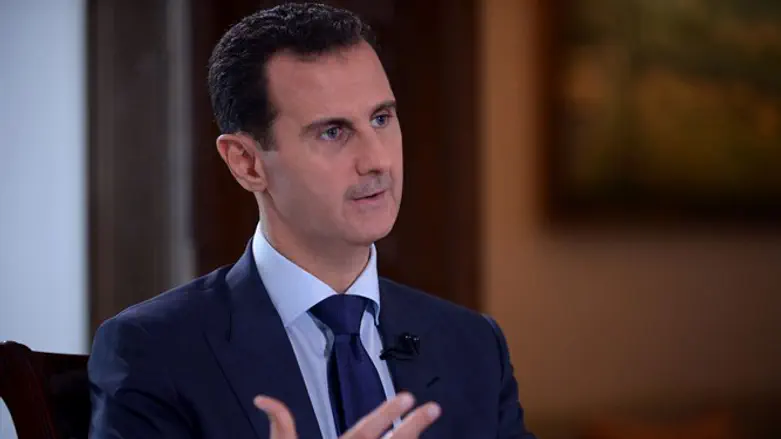
The Pentagon on Monday warned the Syrian regime that it is prepared to shoot down planes threatening international coalition forces in northern Syria, but stopped short of declaring a no-fly zone.
U.S. military officials reacted furiously last week after jets from the regime of President Bashar Al-Assad targeted Kurdish forces and coalition advisers fighting Islamic State (ISIS) jihadists around the northeastern city of Hasakeh.
The American military scrambled fighters on at least two occasions to ward off the Syrian planes, but neither incident resulted in air-to-air contact.
It was apparently the first time the coalition scrambled jets in response to regime action, and possibly the closest call yet in terms of Syrian forces wounding coalition advisers.
"We would continue to advise the Syrian regime to steer clear of those areas," Pentagon spokesman Peter Cook told reporters.
"We are going to defend our people on the ground, and do what we need to defend them," he warned.
Despite the warning, Cook avoided using the politically charged term "no-fly zone."
Secretary of State John Kerry and Democratic presidential nominee Hillary Clinton have both said they support no-fly zones, but President Barack Obama is reluctant to commit resources and troops to enforce such a measure.
"It's not a no-fly zone," Cook said. "But... the Syrian regime would be wise to avoid areas where coalition forces have been operating."
The United States has passed warnings to Syria via Russia, with which the U.S. military has an established line of communication.
When pressed, Cook said the warning also extended to jets from Russia, which has been bombing in support of Assad since last year.
"If they threaten U.S. forces, we always have the right to defend our forces," he stressed.
The United States would protect not only coalition advisers, but also partner forces on the ground -- in this case Kurdish fighters.
The Kurdish People's Protection Units, or YPG, are a key U.S. ally in the fight against ISIS.
Washington regards them as the most effective fighting force on the ground in Syria and has provided weapons and special forces military advisers.
The United States’ alliance with YPG has irked Turkish President Recep Tayyip Erdogan, as his country regards the YPG as a terror group and accuses it of carrying out attacks inside Turkey and being the Syrian branch of the Kurdistan Workers' Party (PKK).
America has for two years led an international coalition against ISIS, conducting daily strikes and working with local forces on the ground to help them fight the jihadists.
Russia started bombing in Syria last year, but most of its strikes have been in support of the regime.
In June, Russian aircraft conducted a series of air strikes near al-Tanf in southern Syria targeting U.S.-backed counter-ISIS forces.
In that incident, the United States did not scramble jets, but the attack frayed an already tense relationship between the coalition and Russia.
Washington and Moscow have been in contact for weeks over establishing military cooperation to fight ISIS in Syria, but Cook said such an agreement was far from a done deal.
"We are not there yet, and the regime and Russia's recent actions only make it harder to consider any potential coordination," he said.
AFP contributed to this report.
